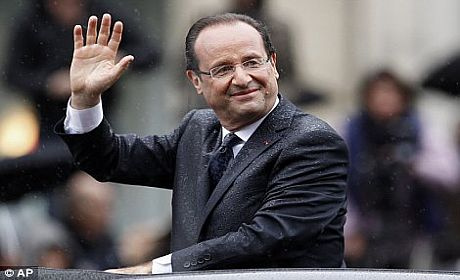Syria, the Device for France’s Revival of Power in the Region

Between the two world wars and after the signing of the Sykes-Picot Treaty between Britain and France and following the disintegration of the Ottoman Empire, France accepted the trusteeship of Syria and Lebanon and obtained an influence in that region. In Lebanon, France was especially recognized as the traditional supporter of the Lebanese Christians. Following World War II, when Lebanon obtained its sovereignty, France, due to its precedence in this country, tried to maintain its influence, particularly among the country’s Christians.
Events which occurred in this region during the years led to the reduction of France's influence, and the Christians in Lebanon, who enjoyed the majority, became the minority, hence, they lost their previous influence. In Syria also, due to consecutive military coups, certain regimes came to power that, considering the conditions of the Cold War, were more inclined towards the eastern bloc and Russia.
From this aspect, France's only hope was the Lebanese Christians. Due to the fact that, following Lebanon’s civil wars and the role played by Syria in Lebanon, issues were raised as to the creation of a Great Syria, meaning that Syria intended to annex Lebanon to its territories in the future and claim sovereign rights over the land of Lebanon, tensions were created between Syria and France.
France, during the Bashar Assad regime and especially when Nicolas Sarkozy came to power in France in 2008, made efforts to bring its relations closer to Syria. Among these efforts were trips made by Sarkozy to Syria and Bashar Assad being the special guest on France's Independence Day. In addition, French expert delegations were dispatched to Syria to conduct administrative reforms in that country. Therefore, France tried for some time to attract Syria's positive view towards itself in order to distance this country from Iran and Hezbollah by having impacts on Syria's behavior. As you know, friction was created between the two March 14th and March 8th fronts. The March 14th Front was made up of followers of Sa'ad Hariri and the Kataeb Party, supported by France. Against them were Shiite forces and some Christians,the representative of whom was Michel Aoun.
Following the recent events in the region, namely the Arab Spring, in which Syria also appeared, France, who had pioneered the military attack against Libya, tried to repeat the same positions with regard to Syria. Therefore, it stated that a military intervention must be conducted against Syria to topple the government of Bashar Assad. This intervention could be launched as humanitarian, just like the Libyan model, to support the civilians, but it needed a Security Council resolution. On this basis, such a plan was twice proposed in the Security Council, but China and Russia vetoed it. After that, the UN appointed special envoys, Kofi Annan and Lakhdar Brahimi, who have not yet found a solution to Syria's crisis and civil war is still going on in that country.
In the end, it must be summarized that France seeks to achieve the stepping down of Bashar Assad so that it can find a solution to this crisis. Furthermore, due to the fact that France has special interests in the region, it feels that it should move ahead of other European countries in this regard.

